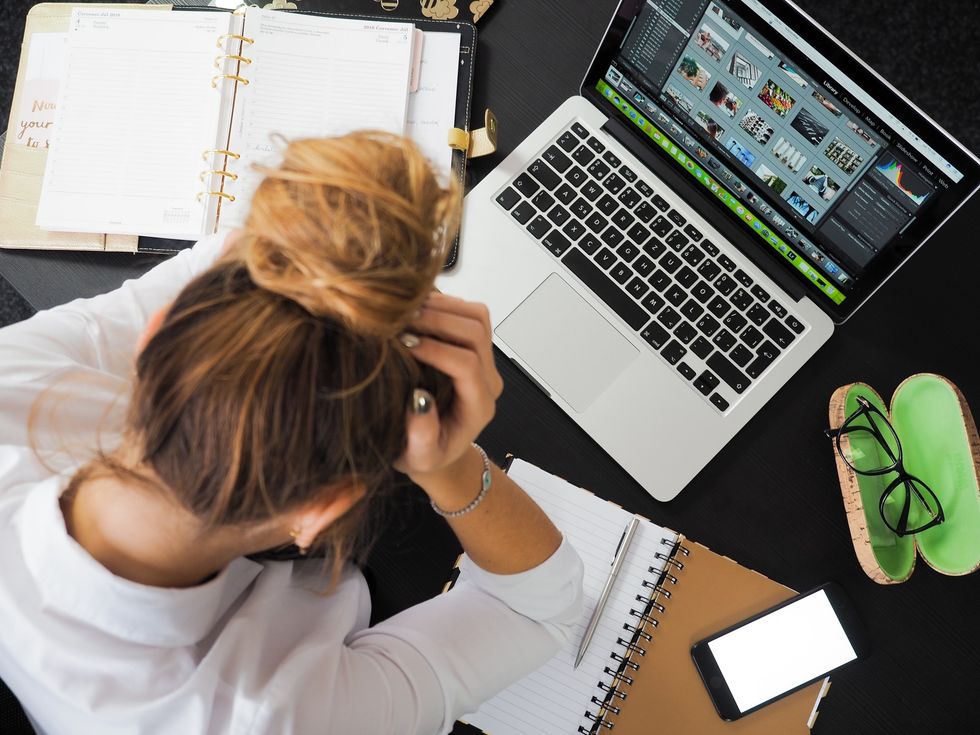I know my warning signs to feeling burnt out, but I tend to ignore them. I have work to get done, money to make, bills to pay and a house to keep somewhat neat (always the last priority on my list, though).
I am sure we all have those moments when we feel like the pressure of daily life is getting too heavy, but the show must go on, right?
Well, I am here to remind you that the show can only go on if you are able to star in it.
When hearing about mental health and the advancements our society has made in the medical sense and how others view mental illness. Thankfully, it appears that many more people and companies are becoming more aware and accepting that mental health should be a priority, whether formally diagnosed or as a human being under stress.
When I worked in the human services industry (briefly), I consciously knew about the “burn out” rate for employees in that field. I was aware that burn out caused high-stress levels and that the turnover rates are incredibly high for those within the human services positions.
This is simply because agencies are overworked and grossly underpaid.
And, human service positions are not the only fields with high stress and large burnout rates.
We can be as conscious as we want of feelings that our responsibilities are depleting our energy and happiness, but how many of us actually take the next steps and engage in self-care?
The answer is, not many.
For some reason, our society has an addiction that we are fully aware of, yet encouraged to continue: we are addicted to work and pleasing others.
As mentioned before, my stints in the counseling fields were short-lived and absolutely rewarding, but the reward was not enough to keep me stuck in a place that was continually worse for my own mental health.
How could I be expected to get everything done and help my clients when I was battling with my own issues?
It was unfair to those who looked to me for guidance, and I felt like I needed to lead by example. If my mental health was at risk, I needed to use my learned tools and resources to remain happy and healthy.
I too often hear that a “no days off” mentality is something to be proud of and is almost expected. That idea gives many people who need time off the notion that taking that time to recharge your body and mind is a sign of “weakness.”
We almost need to prove how indestructible we are by pushing the self-destruct button and waiting to blow up. This never has a good ending and maybe, more importantly, nobody wins.
I should not feel guilty for setting aside time to get some things done that have been long neglected. Sometimes calling out of work for a mental health day may still include some kind of “work,” but if tackling those other responsibilities takes that weight off of your shoulders, then, by all means, call it a mental health day.
When I am stressing and obsessing over all of the phone calls I need to make, studying I need to do, exercising that is about a year overdue and so on, then my performance, in almost every other aspect of my life, drops significantly.
How am I useful to anyone if I am exhausted, mentally drained, physically ill, irritable and just lacking in motivation altogether?
So, instead of letting things reach those points (which still happens) I remind myself that being successful and hardworking does not mean I have to work myself to exhaustion, it just means that I am strong enough to acknowledge that I need to focus on me.
No one should feel like a job is worth more than their sanity or life in general. Listen to your body and focus on you so that you can be healthy and energized in order to kill it in your professional life.
I will no longer feel like less of a human being just because I get overwhelmed by life and I take a day (or two) to catch up on sleep and happiness.



















